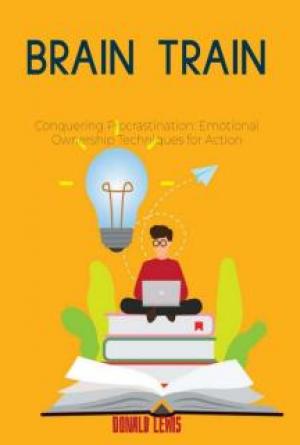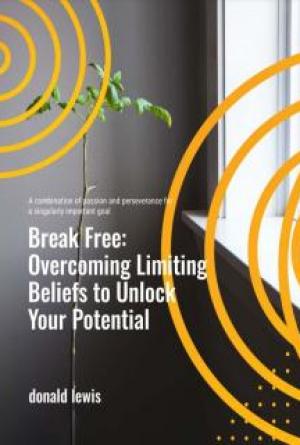CHRISTOPHER R. EDGAR
Copyright © 2010 by Christopher R. Edgar. All rights reserved.
For more information about Chris Edgar’s writing on the case for personal growth, visit www.DevInContext.com. Other works by
Chris include his first book, Inner Productivity: A Mindful Path to
Efficiency and Enjoyment in Your Work, and the accompanying blog Work Consciously.
CONTENTS
I
NTRODUCTION
1
1. R
ADICALR
ESPONSIBILITY: S
ELF-E
FFICACY AND S
ELF-B
LAME
12
2. P
ERSONALG
ROWTH: T
HE N
EW O
PIATE OF THE M
ASSES?
28
3. I
S S
ELF-H
ELPS
ELFISH?
41
4. P
ERSONALG
ROWTH: A C
ULTURE OF
V
ICTIMHOOD?
52
R
EADING L
IST
57
A
BOUT THEA
UTHOR
59
Introduction
Do personal growth techniques like meditation, affirmations and psychotherapy really have practical benefits? Is self-development nothing but self-indulgent navel-gazing? Can intelligent people engage in it with a straight face?
The essays in this collection are part of my effort — and, as far as I know, the only effort being made — to answer these questions, and to make a systematic, compelling argument for the value of personal growth ideas and practices.
By “personal growth ideas and practices,” I mean perspectives and techniques for working with our inner, or subjective, experience — our thoughts, emotions and sensations. Because this definition is obviously broad, I’ll illustrate what I mean with a few examples:
• Psychotherapy works with our inner experience by, among other things, helping us become aware of the unconscious beliefs and emotions that shape our behavior and life circumstances.
• Meditation affects our inner experience by, depending on the practice we engage in, helping us cultivate attentiveness, calm, insight, or some other state or
• capacity.
• Yoga reduces stress and increases our ability to concentrate, in addition to offering “external” benefits such as blood pressure reduction.
“Personal growth,” of course, is only one of the common terms used to describe these ideas and practices — others include “self-help,” “personal development,” “the New Age,” and so on. I’ll get into categorizing various types of personal growth, and distinguishing between activities that amount to self-development and those that do not, further below, but hopefully this will suffice to give the reader a general understanding of what I mean for now.
Although there is a less than clear understanding of exactly what personal growth is, even among its teachers and critics, one thing that’s clear is that it is coming under attack.
In recent years, several books — most notably, Barbara
Ehrenreich’s Bright-Sided and Steve Salerno’s SHAM — have been sharply critical of various facets of personal growth. Selfhelp has also garnered (usually hostile) media attention over the last two years, due to an October 2009 incident in Sedona, Arizona, in which three died in a sweat lodge held as part of a self-improvement workshop. The upcoming February 2011 trial of James Arthur Ray, the workshop’s leader, will bring this issue back into the public consciousness.
Thus far, these critiques — to my knowledge — have largely gone unanswered. Maybe this is because personal growth is such a vast and amorphous field, and it’s hard for any individual “teacher” or “student” to understand whether the attacks are aimed at them. Or, perhaps self-development teachers see their ideas as so widely accepted that no defense is necessary.
Whatever the reason, we’ve seen no public response to the critics yet, and the purpose of these essays is to change that. I think many of the personal growth ideas and techniques out there have much to offer us, and I want to encourage people to avoid hastily dismissing them as woo-woo, flaky, or impractical.
What Do The Critics Say?
The critics have attacked self-development from many different angles, and these essays will not attempt to comprehensively review or rebut every critique. However, a review of the anti-personal growth literature reveals a group of general themes, four of which I’ll address in this collection:
1. Radical Responsibility
The idea that we have the power to shape our life circumstances is a common underpinning of self-development practices. Whether we’re conscious of it or not, personal growth teachers often say, each of us is ultimately in control of our finances, relationships, and other aspects of our lives — and, perhaps, our thoughts and emotional states as well.
The critics’ main quarrel with this notion is that it invites us to blame ourselves for, or “beat ourselves up over,” the problems we face in our lives. If we find ourselves in debt, for instance, that must mean we’re irresponsible, lazy or stupid. After all, we — not external factors such as government policy — are responsible for our own financial fates.
What’s more, the critics charge, if we’re in control of our own circumstances, it follows that others must be in control of theirs. This implies that people who are poor, ill, or laboring under some other misfortune are unworthy of compassion. If they have the ability to solve their own problems, any failure to do so on their part must be “their own damn fault.”
“ Radical Responsibility: Self-Efficacy and Self-Blame,” the first essay in this collection, deals with these and similar issues.
2. A Dangerous Distraction
Many people see self-development as nothing more than a harmless distraction, much like Sudoku or reality TV. Not surprisingly, these aren’t the people who spend time writing critical books and essays about personal growth. The vocal critics tend to see self-development as a socially destructive force.
A common reason for this view is the notion that selfdevelopment practices distract people from pressing social problems. If we develop too much happiness or inner peace by, say, meditating or saying affirmations, we may rob ourselves of the indignation that would otherwise have us act to combat poverty, disease, and so on.
If it doesn’t cause us to blithely ignore political issues that need our attention, some critics suggest, getting involved in personal growth may cause us to neglect problem areas in our own lives. For example, “positive thinking,” assuming it works, may make us “too happy,” and thus complacent about real financial concerns we’re facing.
“Personal Growth: The New Opiate of the Masses?” covers this topic.
3. Self-Help and Selfishness
Critics often argue that, as their name implies, selfdevelopment practices encourage us to become overly focused on ourselves, to the exclusion of others’ needs.
Some critics basically suggest that every minute we spend taking workshops, doing qi gong, or engaging in some other selfgrowth activity, is a minute we won’t be able to spend reaching out to people in need.
What’s more, critics charge, personal growth teachers often encourage us to focus on our own wants instead of the wants of others. After all, there are all sorts of books, seminars and so on about becoming wealthy, “finding the one,” and so on, but how often do we see self-help bestsellers about, say, ending starvation in the world?
I address these questions in “Is Self-Help Selfish?”
4. The Victim Culture
As we saw earlier, some critics target what they see as self-development’s exaggerated view of people’s responsibility for their life situation. Some, however, take the opposite tack, asserting that personal growth teachers encourage people to adopt a passive and self-pitying “victim mentality.”
For instance, many critics claim that psychotherapy fosters in patients the mindset that their parents are responsible for their present woes, and that freeing themselves of the influence of their “families of origin” is basically impossible.
Similarly, some self-development opponents assert that, by inviting us to wallow in our own pain, psychotherapy, support groups and like phenomena draw our attention away from the more serious suffering of others.
“Personal Growth: A Culture of Victimhood?” deals with these concerns.
What Is Personal Development?
Obviously, it is difficult to debate personal development’s merits without fully understanding what it is. Thus, I’ll explore what self-growth means more rigorously before addressing its critics.
In a nutshell, to my mind, personal development perspectives and techniques are (1) consciously intended to work with our “inner experience,” meaning our thoughts, emotions and sensations; and (2) meant to produce progressive and lasting results. I’ll expand on this below.
We’re In It For The Feelings
Arguably, human beings do basically everything they do with the goal of having some kind of inner experience. Whether we’re meditating, giving to charity, getting an education, drinking alcohol, or something else, we’re doing it because of the way we think that activity will have us feel.
To use a common example, we don’t make money just for the sake of having a bunch of colored pieces of paper. We do it because of the feelings we think having and spending money will bring us. Perhaps we want the feeling of security that comes with knowing we’ll have enough to eat, a sense of accomplishment, the thrill of knowing we can buy a flashy motorcycle, or something else. But in any case, what we’re after is some inner experience.
Some might object that they make money to take care of others (their children or elderly parents, for example), not because it helps them feel a certain way. However, you probably wouldn’t have any interest in taking care of others if doing so didn’t give you a certain inner experience — maybe a feeling of happiness, righteousness, or something else.
In other words, if you were emotionally indifferent to whether someone else lived or died, stagnated or thrived, you probably wouldn’t be helping them.
Where The “Conscious” Part Comes In
While it’s true that we do most of what we do with the goal of having an inner experience, we aren’t always consciously seeking such an experience. In everyday life, I think, most of us don’t consciously contemplate how the things we do will have us feel.
When we get up in the morning, for example, we don’t usually ask ourselves whether we’ll feel better if we go to work or stay home, or whether listening to the car radio will make the commute smoother. Usually, when we do these kinds of activities, we’re just going through the motions, running on “autopilot.”
By contrast, personal growth activities, to my mind, are things we do with the specific goal of transforming our inner experience. We do them consciously intending to create a specific mental or emotional state. As a simple example, I may say the affirmation “I am lovable” with the intent of developing more self-appreciation. Or, perhaps I’ll do some yoga to get a sense of openness or lightness in my body.
By my definition, the specifics of an activity don’t determine whether it amounts to personal growth. For instance, suppose (somewhat implausibly) that I’m in the habit of meditating every day simply because my parents told me to. I’m not doing it because I think it will bring me inner peace, happiness, or some other feeling.
In this example, meditation is not a “personal growth” activity for me, regardless of how others might use it, because I don’t do it with the conscious goal of feeling a certain way. The intent is what’s important, not the specifics.
Growth Versus Advice
I’ve yet to discuss how one particular area of selfdevelopment fits into this framework. I’m talking about approaches that try to harness our thoughts, emotions and sensations to create a specific result in the outside world.
Popular examples include visualizing something you want in order to bring it into your life — whether it’s business success, an intimate relationship, or something else; and energy healing intended to improve the client’s health.
This sort of practice is a form of personal growth, under my definition, if it seeks to achieve the outer result by transforming the user’s inner experience, or the way the user relates to that experience.
To illustrate, as I said earlier, a book that teaches us ways to become more loving toward ourselves, on the theory that this will help us attract a partner, would amount to personal growth by my lights, because it seeks to create an outer result by working with our thoughts and emotions.
While it uses the transformation of our inner experience as a tool to change our outer circumstances, this book nonetheless qualifies as personal growth, because it involves consciously focusing on our inner experience.
Tire-Changing Isn’t Self-Development
On the other hand, a book that teaches us how to dress to attract a mate is not a form of personal development under my definition, because it doesn’t focus on transforming or relating to our inner experience.
For this book’s purposes, the way we feel about ourselves is irrelevant. Its goal is to get others — namely, potential partners — to approve of our appearance. I may follow all of the book’s advice and still feel miserable about myself, but the book has nonetheless fulfilled its purpose if potential mates like my style.
This caveat is important, because it keeps the definition of personal growth from encompassing every possible type of advice, and every product or seminar out there that seeks to teach us how to do something.
I imagine most of us wouldn’t think of books on changing a tire, investing in municipal bonds, or mastering Portuguese cooking as being about personal growth, and this observation explains why — the techniques in those books don’t focus on transforming our inner experience. Those books, we could say, are about advice, but not growth.
In I'm Dysfunctional, You're Dysfunctional, self-help critic Wendy Kaminer recognizes this distinction, stating that she is “distinguishing between practical (how to do your own taxes) books and personal (how to be happy) books,” and declaring that she will focus on the latter.
The Consequences For Critics
One result is that, under my view, some ideas targeted by personal development’s critics actually have nothing to do with personal development. In SHAM, for example, Steve Salerno treats magazines like Cosmopolitan, which teach women “how to paint themselves, primp themselves, and acquire enough sexual know-how to keep a man satisfied and at home,” as examples of “self-help and actualization” (a.k.a. “SHAM”) literature.
However, from my perspective, advice about putting on makeup that doesn’t focus on transforming your inner experience is not “personal growth” advice. To say otherwise, I think, would likely expand the concept of personal growth so far as to render it meaningless. After all, if makeup tips amount to personal development, why not tire-changing tips as well?
Progressive and Lasting Change
Thus far, we’ve talked about the first part of my working definition of personal development — namely that, to amount to personal growth, an idea or technique must be consciously intended to work with our “inner experience,” meaning our thoughts, emotions and sensations.
This brings us to the second criterion an approach must meet, under my definition, to be personal development: it must be intended to produce progressive and lasting change.
By “progressive” change, I mean that, each time the user does the activity, they make progress — however gradual — toward their ultimate goal, whether that goal is happiness, a better job, a Buddhist-style attitude of non-attachment to their experience, or something else.
By “lasting” change, I mean the benefits of the activity must persist even when the user isn’t doing the activity. In other words, the user must take those benefits with them into the “real world,” rather than only experiencing them in the therapist's office or seminar, or on the meditation cushion.
Why Therapy Isn’t Like Candy
If I see a therapist, for instance, I’ll probably do so expecting progressive and lasting benefits to my mental and emotional health. I’ll desire progressive change in the sense that, each week that I visit my therapist, I want to feel more at peace with myself than I did during the last.
What’s more, I’ll probably want those benefits to persist in between therapy sessions. I won’t want the self-acceptance I feel to suddenly disappear the moment I walk out of the therapist’s office. In all likelihood, I’ll also want that peace to last even when I’m no longer in therapy — I won’t want it to fade away after the therapeutic relationship ends. Thus, generally speaking, psychotherapy is a personal growth activity under my definition.
By contrast, suppose I eat a piece of candy because I want to create a particular inner experience — in this case, a taste sensation. I probably won’t do this expecting lasting changes in my experience. In all likelihood, I’ll understand that eating the candy will give me a brief moment of pleasure, but after a little while the feeling will pass. I’ll be “back to square one,” emotionally speaking — as far as my inner experience is concerned, it’ll be as if I never ate the candy at all.
It’s About Expectations, Not Results
Finally, note that I said the activity must be intended to produce progressive and lasting change. The activity need not actually create that type of change to amount to self-development under my definition.
For example, if a person goes to an energy healer expecting to grow more relaxed and focused over time, but in fact each session only creates a fleeting “high,” like the candy I mentioned earlier, the energy healing would nonetheless be “personal growth” as I use the term.
I offer this caveat to avoid defining personal growth to include only techniques and perspectives that “work,” because that would foreclose the possibility of meaningful debate about the merits of specific approaches.
As a result, even if you believe that no form of personal development is effective and it’s all a fraud, you can still accept my definition. Like I said earlier, my definition is purely descriptive — it’s simply meant to capture the conventional view of what self-development is, and not to judge whether certain techniques are helpful or moral.
As I imagine you’ve already gathered, despite the antiintellectualism people often ascribe to personal growth, the critiques of self-development, and my responses to them, raise profound philosophical, psychological, political and other questions. Let’s get into some of those questions now.
1
Radical Responsibility: Self-Efficacy and Self-Blame
A common theme in personal development literature is that we should take responsibility for our life circumstances. It’s best for us, in other words, to see ourselves as in control of our situation, as opposed to believing that forces beyond our control create it. I call this idea the “responsibility ethic.”
On the surface, this doesn’t seem controversial. If I’m in debt, for instance, it won’t do me any good to sit around blaming the stock market, my family, the current phase of the moon, or some other outside force. I have no reason to take steps to get out of debt unless I accept that my actions — cutting expenses, selling things I don’t need, and so on — can fix the situation.
Personal growth’s critics, however, often argue that the responsibility ethic has unsavory consequences. A person who believes they control their lot in life, the critics say, will be prone to beating themselves up. If they don’t get the results they want, in whatever area of life they’re trying to improve, they’ll blame themselves.
Suppose, for example, that I do everything in my power to get out of debt — I cut up my credit cards, sell unnecessary stuff, and work with a debt counselor — and I still fail to reduce my debt by the desired amount. If I think I’m 100% in control of my situation, I’ll see this failure as proof that I’m lazy or stupid, and suffer over it. As Steve Salerno writes in SHAM: How the SelfHelp Movement Made America Helpless, “if you make people believe they have full control over their lives, and then their lives don’t get better (or even get worse), how could that not throw their synapses into turmoil?”
In this essay, I’m going to question the assumption that the responsibility ethic promotes self-blame.
The Psychological Research
Psychologists use the term “ locus of control” to describe a person’s beliefs about the degree to which they’re responsible for their circumstances. The more I tend toward an “internal locus of control,” the more I believe in my own power to direct my destiny. By contrast, the closer my beliefs are to an “external locus of control,” the more I think I’m at the mercy of factors I can’t influence.
For example, suppose I’m a student, and I’m about to take a test. If I have a strong internal locus of control, I’ll believe that, if I work hard enough, I’ll get a good grade. But if I have a strong external locus of control, I’ll assume that studying will have little effect on how well I do, and the grade I get will be largely the result of luck. Not surprisingly, psychologists have
found that students who tend toward an internal locus of control usually study harder.
The locus of control concept is relevant here, because psychological research has repeatedly found a relationship between people’s locus of control and the likelihood that they will suffer from depression. People closer to an internal locus of control, as it turns out, are less prone to depression than people who tend toward an external locus of control.
In other words, people who see themselves as responsible for their circumstances in life are less likely to get depressed. In fact, it’s those who see themselves as mere pawns of other people or forces who are more likely to have that problem. This makes sense, psychologists say, because of the feelings of helplessness and despair created by these people’s sense of inefficacy.
These findings don’t mesh well with the self-development critics’ argument. If the critics are right, and people who see themselves as in charge of their lot in life are likely to beat themselves up, we should expect those people to be more prone to depression than those who believe they’re at the mercy of outside forces. But the exact opposite appears to be true, which casts doubt on the idea that the responsibility ethic is creating all this unnecessary suffering for people.
We Need More Evidence
I’m not claiming that this completely settles the issue. After all, if we really want to know whether personal growth’s responsibility ethic is causing suffering, we need to study people who do some kind of personal development activity — reading self-help books, going to transformational workshops, or something along those lines — and inquire whether that activity has any relationship to depression, problems with anger, and so on. And these, of course, would have to be books, workshops, and so forth that encouraged a sense of personal responsibility for one’s situation.
Psychological researchers have only recently begun to look into the effect of personal development techniques (not counting psychotherapy) on mental health issues like anxiety and depression.
There is no clear consensus yet: in one study of a wide range of self-help books, the vast majority of the readers surveyed reported “a significant improvement in their condition.” There have also been many studies of the psychological effects of meditation, suggesting that meditation helps alleviate depression and other emotional problems.
However, as far as I’m aware, there is no concrete evidence that the responsibility ethic, whether presented through books, workshops, or some other medium, is doing all the psychological harm to people that the critics allege. Thus, the “self-blame” argument against the responsibility ethic isn’t obviously correct or commonsensical at all.
Responsibility Versus Blame
The critics of personal growth aren’t the only ones aware of what I’m calling the “self-blame argument.” Many personal development teachers understand it as well. What they often say is that it’s possible to see ourselves as re







